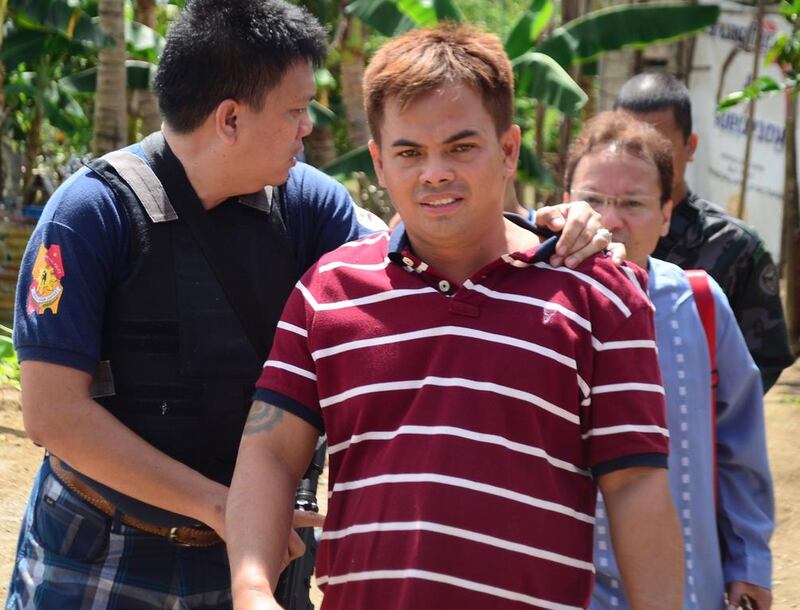ABU DHABI // A fugitive wanted for major drugs crimes in the Philippines was arrested by Abu Dhabi police on Sunday night.
Rolando “Kerwin” Espinosa Jr, 36, the son of Albuera mayor Rolando Espinosa Sr, was one of the first drug lords named by Philippine president Rodrigo Duterte when he took office in June.
Espinosa was detained by police at an apartment in the capital at about 10pm, and remains in custody.
“Authorities are now investigating how he got here and the people involved in facilitating his trip,” said Constancio Vingno Jr, the Philippine ambassador to the UAE.
“Of course, somebody must have sponsored his visa. How come he was able to stay in an apartment since he’s not a resident? How could he have gotten that apartment? Someone may have arranged it for him.”
Espinosa has been on a Philippine National Police watch list since September 23.
“They knew his whereabouts and where he was travelling and was being closely monitored,” Mr Vingno said.
“Abu Dhabi Police got to know about his presence here in the UAE because of information provided by our PNP.
“The PNP chief director-general Ronald dela Rosa sent a team here last week to work with Abu Dhabi Police. The successful arrest was made by the PNP, the Abu Dhabi CID and with the help of Interpol who issued the red notice.”
Four arrest warrants were issued for Espinosa by the regional trial court in Leyte province in the Philippines. Based on those warrants, the PNP sought the help of Interpol, Mr Vingno said. Meanwhile Espinosa travelled to Abu Dhabi via Malaysia.
“Abu Dhabi Police and the PNP then moved to capture him,” Mr Vingno said. “There were intelligence reports that he was already in the country. Authorities worked on it quietly. That’s real detective work. The success of the operations was mainly due to excellent police work and cooperation between the authorities of both countries.
“The UAE and the Philippines do not have an extradition treaty. Our immediate goal is to have him repatriated to the Philippines as soon as possible to face charges there.”
However, there may be complications.
“It’s highly probable that he has accomplices,” Mr Vingno said. “If it is found that he’s been dealing drugs here, then he would have broken the UAE’s laws, which means charges would be filed against him and a trial would ensue.”
What happens next depends on the two governments, but if the case were expedited it could take only a matter of days to surrender Espinosa to the Philippine authorities, said Barney Almazar, a legal consultant in Dubai who is an expert in international human-rights law.
“However, if the Philippines is unable to produce the required documentation within 45 days of the arrest, the UAE may release him,” he said.
A pending criminal case in the UAE would prevent Espinosa’s deportation. The Philippines could still ask for his surrender with the condition that he be returned to the UAE to face trial once he has served any sentence in the Philippines, Mr Almazar said.
rruiz@thenational.ae






